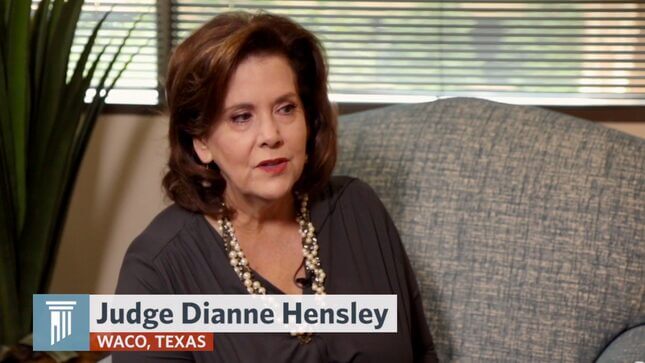Judge Uses Supreme Court’s Gay Wedding Website Ruling for Her Own Anti-LGBTQ Lawsuit
Dianne Hensley of Texas is seeking to expand the Supreme Court’s decision in 303 Creative v. Elenis so she doesn't have to perform gay weddings.
JusticePolitics

We said the recent Supreme Court ruling in favor of a Colorado wedding website designer opposed to same-sex clients was going to be a civil rights disaster, and the fallout is already well underway.
A Waco, Texas, judge who has refused to perform same-sex weddings was publicly warned in 2019 for violating Texas’ code of judicial conduct. McLennan County Justice of the Peace Dianne Hensley then sued the state, claiming that the warning violated state law by punishing her for acting in accordance with her religious faith and “substantially burdened” her free exercise of religion.
-

-

-

-

-

-

-

-

-

-

-

-

-

-

-

-

-

-

-

-

-

-

-

-

-

-

-

-

-

-

-

-

-

-

-

-

-

-

-

-








































